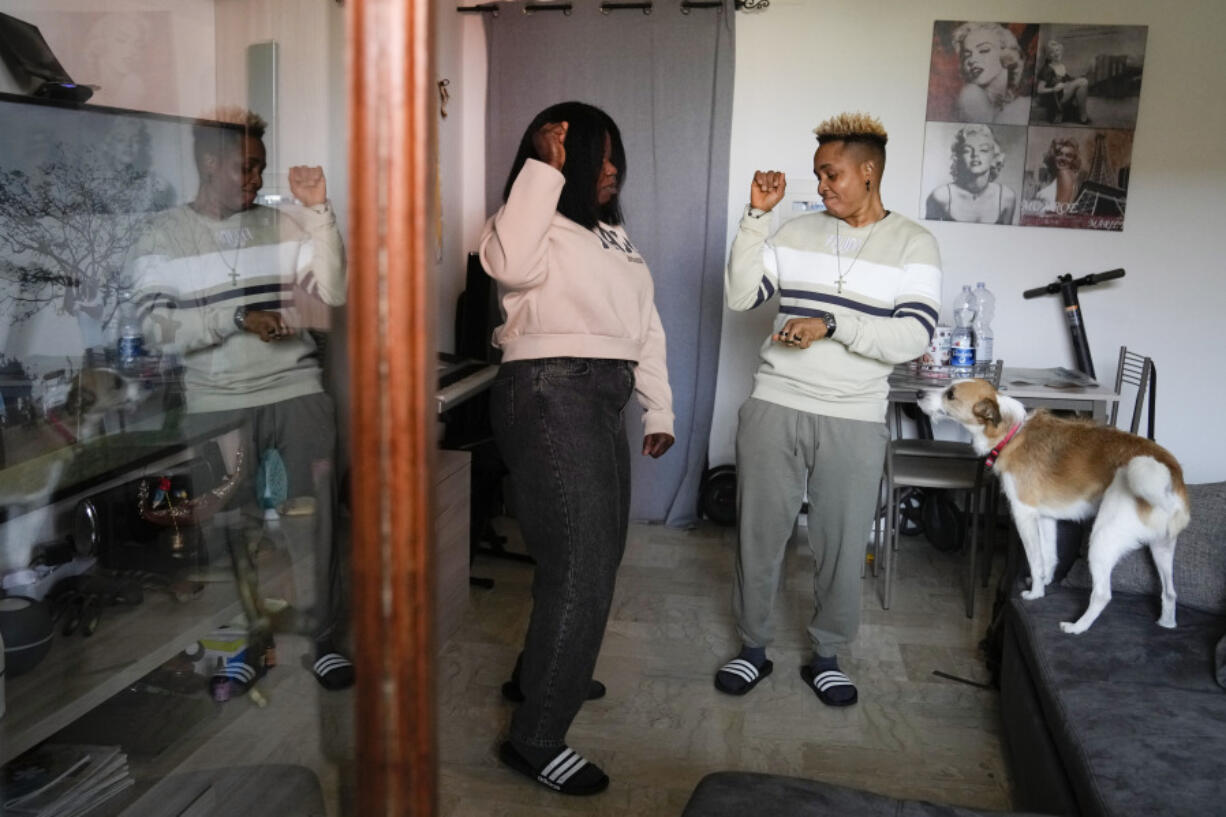RIETI, Italy — Ella Anthony knew it was time to leave her native Nigeria when she escaped an abusive, forced marriage only to face angry relatives who threatened to turn her in to police because she was gay.
Since Nigeria criminalizes same-sex relationships, Anthony fled a possible prison term and headed with her partner to Libya in 2014 and then Italy, where they both won asylum. Their claim? That they had a well-founded fear of anti-LGBTQ+ persecution back home.
While many of the hundreds of thousands of migrants who arrive in Italy from Africa and the Mideast are escaping war, conflict and poverty, an increasing number are fleeing possible prison terms and death sentences in their home countries because of their sexual orientation or gender identity, advocates say.
And despite huge obstacles to win asylum on LGBTQ+ grounds, Anthony and her partner, Doris Ezuruike Chinonso, are proof that it can be done, even if the challenges remain significant for so-called “rainbow refugees” like them.
“Certainly life here in Italy isn’t 100 percent what we want. But let’s say it’s 80 percent better than in my country,” Chinonso, 34, said with Anthony by her side at their home in Rieti, north of Rome. In Nigeria, “if you’re lucky you end up prison. If you’re not lucky, they kill you,” she said. “Here you can live as you like.”
Most European countries don’t keep statistics on the number of migrants who claim anti-LGBTQ+ persecution as a reason for seeking refugee protection under international law. But nongovernmental organizations that track the phenomenon say the numbers are rising as countries pass or toughen anti-homosexuality laws — a trend being highlighted on Friday’s observance of the International Day Against Homophobia, Biphobia and Transphobia.
To date, more than 60 countries have anti-LGBTQ+ laws on the books, most of them in Africa, the Middle East and parts of Asia.
“The ultimate result is people trying to flee these countries to find safe haven elsewhere,” said Kimahli Powell, chief executive of Rainbow Railroad, which provides financial, legal and logistical support to LGBTQ+ people needing asylum assistance.
In an interview, Powell said his organization had received about 15,000 requests for assistance last year, up from some 9,500 the year before. One-tenth of those 2023 requests, or about 1,500, came from Uganda, which passed an anti-homosexuality law that year that allows the death penalty for “aggravated homosexuality,” and up to 14 years in prison for “attempted aggravated homosexuality.”
Nigeria also criminalizes consensual same-sex relations between adults and the public display of affection between same-sex couples, as well as restricting the work of groups that advocate for gay people and their rights, according to Human Rights Watch. In regions of Nigeria where Sharia law is in force, LGBTQ+ people can face up to 14 years in prison or the death penalty.
Anthony, 37, said it was precisely the threat of prison that compelled her to leave. She said her family had sold her into marriage, but that she left the relationship because her husband repeatedly abused her. When she returned home, her brother and uncles threatened to turn her into police because she was gay. The fear and alienation drove her first to attempt suicide, and then take up a trafficker’s offer to pay for passage to Europe.
After arriving in Libya, Anthony and Chinonso paid traffickers for the risky boat trip across the Mediterranean Sea to Italy, where they both claimed asylum as a member of a group — LGBTQ+ people — who faced persecution in Nigeria.



